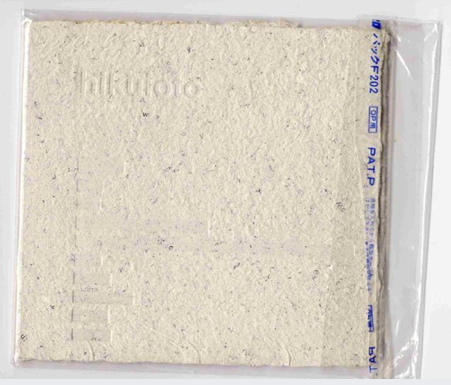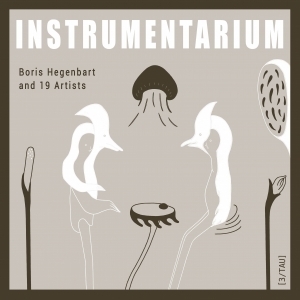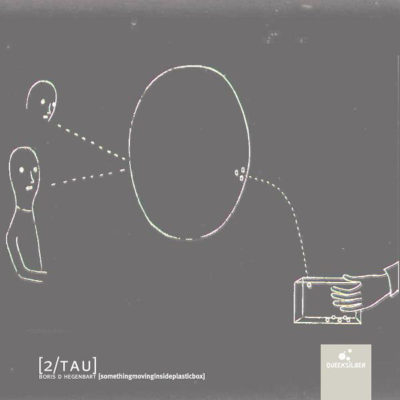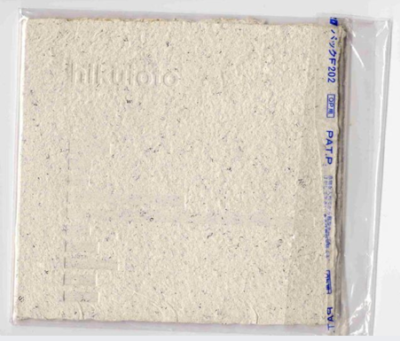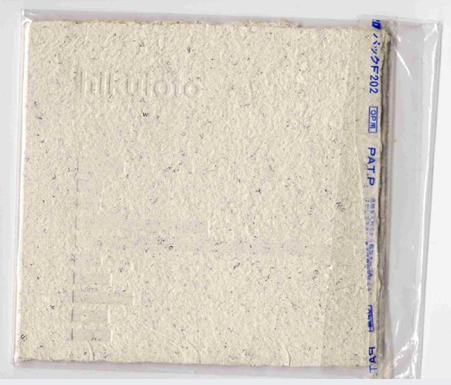
Hikuioto, the debut cd of Boris D Hegenbart, ends with a leap. 500 copies in handmade paper-covers have spread out in ripples across the world. A frog leaps into a pond. What remains is digital silence.
Reviews:
“Boris Hegenbart’s fascination with the culture and sounds of Japan informs hikuioto, a remarkable creation poised idiosyncratically between Cologne and Tokyo. With such labels as a-musik, Karaoke Kalk, Tom, Amoebic, Zero Gravity, and meme leading the charge, it’s no surprise that these two cities have become foci for much of the most intriguing activity in modern electronic music. A complex synthesis of cultural and historical parallels has sown the seeds of musical insurgence that now flourish on both fronts, while no small measure of mutual respect, fascination, and admiration has fertilized a unique symbiosis unimpeded by geographic distance. On hikuioto’s shorter tracks („grounded;” “homeless;” “pond”), Hegenbart becomes one of the first artists to openly acknowledge the unspoken aesthetic link between the separate communities. He applies patently German treatments to Japanese and English voices, creating cogitative concregrave;te haiku gilded with gossamer melodies. Sublimely Reich-like in effect, the magically mutating 26-minutes of “musicforcicadas” find Hegenbart patiently extracting syllables, song-like melodies, and rhythmic loops from the taped voice of a Japanese female reciting a poem. Throughout “sultriness,” hikuioto’s other centerpiece, soothing natural sounds and voices offset lacy, raga-form synthetics and warmly crackling electronics, whilst rhythmic sputters and razor-edged noise bullets zip through the ether. The laconic but beguiling “tripel” and “folded” explore a freely melodic minimalist sensibility that mirrors the fragility and repose of such silent poets as Tamaru and Taku Sugimoto and becomes all the more alluring in the context of Hegenbart’s mellow-hued, Microstoria-like electronics. hikuioto’s soft, folded packaging, crafted from handmade cardboard, strikes a complementary note of Eastern artistic personality and helps to make 1/tau’s debut one of 1998’s most mysterious and splendid relics”.
review by Gil Gershman, Motion
“Boris Hegenbart, von dem diese erste CD auf Tau und das Label ist, liebt Japan, die traditionelle japanische Musik, die Kunst des Haikus, diverse buddhistische Ideen, Musik und Geräusch. Die zehn Stücke dieser CD drehen sich um Haikus, von japanischen Freunden aufgenommen, und versuchen dieser Form (17-silbiges Gedicht, ein Mythos, selber nachchecken, wir erklären das nicht, nur soviel: das Haiku sagt alles) gerecht zu werden. Was klingt wie eins dieser unsäglich langweiligen Kunstmusikarten, die an Hochschulen tagein tagaus zu Terrabytes produziert werden, ist eine äußerst spannende CD geworden. Stellenweise, denn jeder Track ist sehr eigen, wirkt es wie Reisen durch Städte, die Klänge sind sehr reduziert, klar, eigenwillig und transparent aber dicht, die Stücke reduziert auf das wesentliche einer Stimme und seiner Gegengewichte. Erdungsgeräusche, Ausbrüche von Klangsynthese und aufgenommene neu kontextualisierte Umgebungen. Abgesehen davon, daß diese CD auch noch extrem gut aussieht (handgeschöpfter Karton, Prägedruck, silbriger Maschinenaufkleber) dürfte sie vielleicht das klarste Release in Sachen Klangexperimente mit Stimme sein, das ich seit langem gehört habe, und das nicht nur aufgrund einer unerklärlichen Japansympathie. (zu bekommen über Hegenbart und über A-Musik, Gelbe Musik und Raw)”.
review by bleed, de-bug
